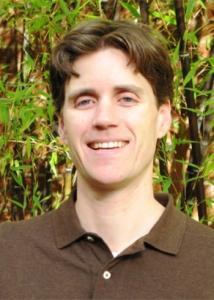
Derrick Hindery
Education
What is lost when the forest is lost? the struggle for Indigenous rights and environmental justice in Bolivia, Latin American Studies Association Forum, Winter 2022, by Derrick Hindery, José Antonio Martínez Montaño, and Zulma Villegas Gomez
BOOK: "From Enron to Evo: Pipeline Politics, Global Environmentalism, and Indigenous Rights in Bolivia," published by University of Arizona Press, foreword by Susanna B. Hecht (part of the "First Peoples: New Directions in Indigenous Studies" publishing initiative)
The University of Oregon is located on Kalapuya Ilihi, the traditional indigenous homeland of the Kalapuya people. Following treaties between 1851 and 1855, Kalapuya people were dispossessed of their indigenous homeland by the United States government and forcibly removed to the Coast Reservation in Western Oregon. Today, descendants are citizens of the Confederated Tribes of Grand Ronde Community of Oregon and the Confederated Tribes of the Siletz Indians of Oregon, and continue to make important contributions in their communities, at UO, and across the land we now refer to as Oregon.*
We express our respect for all federally recognized Tribal Nations of Oregon. This includes the Burns Paiute Tribe, the Confederated Tribes of the Coos, Lower Umpqua and Siuslaw Indians, the Confederated Tribes of the Grand Ronde Community of Oregon, the Confederated Tribes of Siletz Indians of Oregon, the Confederated Tribes of the Umatilla Indian Reservation, the Confederated Tribes of Warm Springs, the Coquille Indian Tribe, the Cow Creek Band of Umpqua Tribe of Indians, and the Klamath Tribes. We also express our respect for all other displaced Indigenous peoples who call Oregon home.
Research
Research areas
- Political ecology, environment and critical development studies
- Effects of neoliberal and "post-neoliberal" models of economic "development" on the environment and indigenous peoples in Bolivia
- Indigenous movements and Indigenous alternative models of living (e.g. women's non-timber forest products cooperatives, indigenous artisan and music schools)
- Latin America (primarily Bolivia), U.S. (LNG projects and associated upstream and downstream impacts, including fracking)
- Social and environmental impacts of natural gas and mining projects
My research focuses on effects of neoliberal and "post-neoliberal" models of economic development on communities (primarily indigenous communities) and the environment in Latin America and the U.S. Specific research projects include: 1. Effects of neoliberal and "post-neoliberal" models of economic development on sensitive ecosystems and indigenous peoples in Bolivia, focusing on:
- a comparative analysis of impacts of Enron (now Ashmore) and Shell's Cuiabá and Bolivia-Brazil pipelines and associated mines on Bolivia's Chiquitano Forest, Pantanal Wetlands, Chaco Forest and indigenous communities under neoliberalism (1985-2005) versus post-neoliberalism (post-2005), using qualitative research, field observations, remote sensing, and GIS data sets (ongoing project, since 1999). This also includes comparisons with other extractive projects such as oil development in the vicinity of Madidi Park and extractive development in Isiboro Sécure National Park and Indigenous Territory (TIPNIS).
- a comparative analysis of deforestation in Bolivia's Santa Cruz Department under neoliberalism (1985-2005) versus post-neoliberalism (post-2005), centering on large-scale commercial agriculture. Co-PI. Collaborative project with Andrew Millington (Texas A&M) and Danny Redo (Texas A&M University).
- innovative alternatives implemented by lowland indigenous peoples in Bolivia (e.g. the Guarayo Music and Artisan Institute in Urubicha, Bolivia; networks of women cooperatives producing non-timber forest products like copaibo and babassu oil).
- effects of Chinese investment in Bolivia's lowlands, focusing on extractive industries, gender and environmental justice.
- political, economic and environmental drivers of fires in the Bolivian lowlands, focusing on linkages with industrial farming, colonization and logging.
2. Environmental, social and policy impacts of Liquefied Natural Gas (LNG) projects along the commodity chain, from source areas of extraction in Bolivia and the Peruvian Amazon to sites of distribution and consumption in Southern California, Oregon and Mexico. The study focuses on marginalized communities disproportionately affected by construction and operation of LNG receiving terminals in Baja California, Mexico, Southern California, and Oregon. This research is contextualized within the current debate between the Federal Energy Regulatory Commission and state agencies over the siting of Liquified Natural Gas (LNG) receiving terminals.
Teaching
Courses currently taught:
- OXFA 488: Indigenous Rights and Environmental Justice in Bolivia (3-week long study abroad course, taught each summer and online in summer 2020 and 2021 as well): https://geo.uoregon.edu/programs/bolivia/indigenous-rights-and-environme...
- GLBL 380 or 399 (formerly 280): Global Environmental Issues and Alternatives
- GLBL 420/520: Global Community Building
- GLBL 446/546: Development and Social Change in Latin America
- GLBL 407/507: Innovative Alternatives in a Globalizing World
- GLBL 407/507 (formerly 410/510) and HC231H (Honors College): Sustainability Movements around the World
Courses previously taught:
- INTL/GLBL 655: Global Studies Graduate Core Seminar
- GEOG 465/565: Environment and Development
- GEOG 607: Indigenous Rights and the Environment (graduate seminar)
